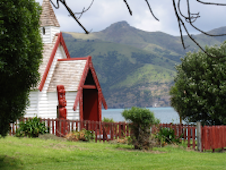Monday 3 June 2019 9:31am
 The Centre is seeking expressions of interest in two PhD Scholarship opportunities in Māori research.
The Centre is seeking expressions of interest in two PhD Scholarship opportunities in Māori research.
These will be fully funded scholarships of $27,000 per annum plus fees. Both will be supervised by Professor Merata Kawharu and funded through the Centre for Sustainability.
Students may be able to either study on campus or in their own communities while still being enrolled at the University of Otago.
The two projects are:
1. A question of identity: how connected are Māori youth to ancestral marae, and does it matter?
This project is funded by the Royal Society Te Apārangi – Marsden Fund.
Overview:
Most Māori people live away from their ancestral home marae. Evidence suggests Māori seek, but may struggle, to remain connected to their marae, language and culture. Home marae communities, generally depopulated and geographically isolated are also seeking to maintain or strengthen contact and connection with their dispersed descendants. But does belonging to marae actually matter amongst young Māori?
We aim to investigate difficult issues about marae connection and identity. We engage in discussions with young Māori, especially through schools and other youth outlets (e.g. kapa haka groups, sports teams) and their source communities to find answers that broaden understandings of marae in relation to critical transformations of ‘community’ occurring both at home and overseas. Our kaupapa also aims to deepen New Zealand's awareness of the diverse needs and aspirations of young Māori and their home marae people today. It will provide vital knowledge, regarding how whānau, marae, hapū and others can navigate through complex circumstances of our time.
Our findings will offer leading insights from New Zealand and contribute to discussions on similar issues facing indigenous peoples internationally regarding home connection and identity.
2. New models of collective responsibility for land and water
This project is part of the Ministry of Business, Innovation and Employment (MBIE) funded National Science Challenge – Our Land and Water.
Overview:
This project broadly aims to explore new models of collective responsibility that enable the practice of environmental care at enterprise, catchment and/or ancestral landscape scales, including:
- Business models that draw upon whakapapa, kaitiakitanga and, more generally, tikanga and mātauranga, to connect producers with relationally-linked consumers
- Models for catchment collectives, to help them to diagnose and address issues, prioritise investments, and scale up to achieve their own and community aspirations
- Recommendations for fostering collective responsibility through policy and market networks
We have already begun a kaupapa in and around the Waitangi rohe on developing ‘Pā to Plate’, which is a descendant ‘producer’ kaitiaki-to-descendant consumer network. Research over the last 3 years (through hui, kōrero with local people and a survey) has found significant interest in the potential for a collective of ‘pā’ or locally-resident Māori and others to connect the hua or ‘fruits’ from Papatūānuku via their own enterprises (e.g. Māori land trust, whānau business) to descendants (‘the plate’), wherever they live.
This next phase of work builds on the beginnings of Pā to Plate. It may also include related work in Taitokerau under the broad kaupapa explained above.
Contact us
Please direct all enquiries or expressions of interest to Professor Merata Kawharu
Email merata.kawharu@otago.ac.nz
